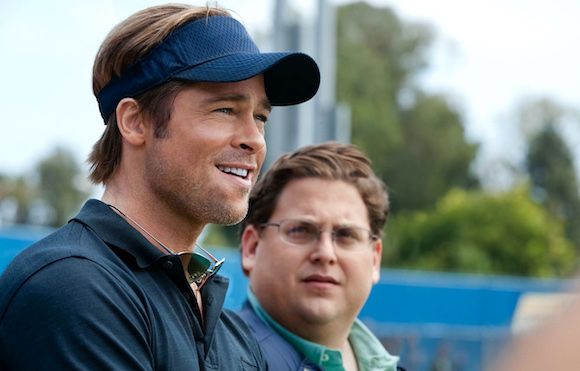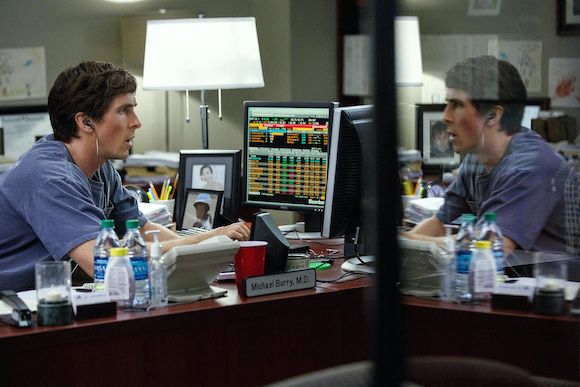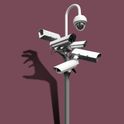In the teeth of the US pandemic, a biochemist named Joe DeRisi set up a Covid testing unit called Biohub. The aim was to provide testing kits to local health officers. Biohub would process the completed tests and inform the health officers of the results. But there was a hitch. Most local health authorities could not receive Covid test results electronically. The information needed to be sent by fax. And some of the local authorities had fax machines so old that they couldn’t handle more than six pages at a time. Some didn’t work at all. That meant that in the year 2020, Biohub—as well as providing Covid testing kits—also started buying and delivering fax machines.
This is just one of many startling anecdotes in Michael Lewis’s new book The Premonition. Lewis has been chronicling the life of US institutions for decades. His 1989 debut, Liar’s Poker, was an excoriating—and bestselling—account of his time on Wall Street. Since then, he has written a stack of blockbusters on everything from baseball to behavioural psychology and high-frequency trading. Several have become Hollywood films. Ever since the banking crisis, he has reaped handsome returns from his writing on different aspects of financial disaster (The Big Short, 2010; Boomerang, 2012) and the frailties of American governance in the age of Donald Trump (The Fifth Risk, 2018).
But The Premonition is the most disturbing of all Lewis’s books. When the pandemic struck, the US public healthcare system, first ignored and then cynically used as a political lever by Trump, failed to work. In the crucial early weeks, as the virus spread, there was no unified response, even though health experts could see what was happening. Stifled by bureaucracy and internal politics, the systems created to protect the public became a threat to their lives.
Faced by the collapse of America’s public health services, one of Lewis’s subjects delivers the line that haunts the book: “these,” he says, “are the symptoms of a failed state.”
Lewis has made a career out of taking apparently unpromising subjects and turning them into narrative gold. And yet he never meant to become a writer. He studied art history at Princeton, but his thesis adviser warned him “there aren’t going to be any jobs” in that field. After a chance meeting with the wife of a senior executive at Salomon Brothers, he landed an interview with the Wall Street investment bank and then a job.
At Salomon Brothers he witnessed the birth of the mortgage-backed securities market, which he wrote about in Liar’s Poker. Mortgages and what banks do with them are not, on the face of it, subjects to wow the crowd. But Lewis revealed a world of preposterous excess, of “big swinging dicks,” of phonies and geniuses, all driven by a crazed desire for money. What made the story alluring was that Lewis had identified a small group who had seen what others had missed—that the US home loan market contained billions of dollars in untapped value.

Seeing what everyone else has missed is a recurring theme. In Moneyball it was the canny baseball coach who figured out that most people were studying the wrong statistics. In Flashboys, banker Brad Katsuyama uncovered what he regarded as an attempt to rig the stock market using high-frequency trading. In The Big Short, the focus was on hedge fund managers who saw the crash coming, and in The Premonition, he follows the health experts who anticipated the gathering Covid storm.
Not all his characters are especially heroic, but their superior nous makes them irresistible. In the case of Liar’s Poker, this led to some unintended consequences. Lewis thought he was writing a warning letter about a finance sector running out of control. (The complex financial products invented at Salomon Brothers in the 1980s were the same ones that blew up in 2008.) Years later, Lewis went out for lunch with the former CEO of Salomon Brothers, John Gutfreund. “Your fucking book destroyed my career,” Gutfreund told him, “and it made yours.” He was right on both counts. But the public loved Lewis’s chutzpah. Instead of being warned off Wall Street, readers began asking how they could get into finance.
But now America, and the world, faces a catastrophe more serious than any financial collapse. “It seems to me the stakes are highest now,” Lewis said when I spoke to him via Zoom. “It may not matter all that much if the New York Yankees are stupidly run. But it matters a whole lot if the Centers for Disease Control is not well run.”
“Not all his characters are especially heroic, but their superior nous makes them irresistible”
The Centers for Disease Control (CDC) is the US government entity that watches out for threats like Covid. But in the opening phase of the pandemic its response was disastrous. The CDC is led by a political appointee, which was a special risk in the years when executive authority was vested in Trump. But the problems went deeper than that. Top-down, rigid management created a culture of what Lewis terms “malignant obedience,” an unthinking willingness to follow process. This arose from, as he puts it, “decades of being punished if you don’t obey.”
“The kind of people who end up in government jobs usually in the first place aren’t great risk takers,” Lewis says. “You walk around Washington on a day with a 20 per cent chance of rain. It’s amazing how many people are carrying umbrellas. That’s how they’re wired. It’s the opposite of Wall Street traders. You’ve already got people who are cautious by nature. You build a system around them where if they do something great [by] taking some risk they’re unlikely to be rewarded for it in any noticeable way. But if it doesn’t pan out, even if it was a smart thing to do, they might be hauled in front of the Senate.” This culture of institutional hesitancy at the CDC put lives at risk.
Moreover, the CDC’s leadership issued instructions to public health officials prohibiting use of the word “pandemic,” which—and this was surely a Trump wish—it regarded as too politically loaded. At the same time, the president himself was saying of Covid that “we pretty much shut it down from coming in from China.” For a government appointee to go against that blithe analysis would have had severe consequences.
Ultimately, America’s pandemic response was developed by individuals outside the government’s framework. “Sometimes the best way to describe the system or institution is through someone who is in opposition to it in some way,” says Lewis. “There’s no question it’s a trope in my writing, that I’m attracted to those kinds of people.”

Charity Dean, a public health officer from Santa Barbara, is almost the perfect Lewis character. “From a very young age,” Lewis writes, “when she was feeling low, she had cheered herself up by reading books on bubonic plague.” Dean grew up a devout Christian, and despite the objections of her family, who wanted her to stay at home, marry and raise a family, she was determined to go to medical school. A sharp mind and a steely manner got her into the world of public health administration, where she soon developed something of a reputation. Men, she is quoted as saying, “always underestimate me. They think my spirit animal is a bunny. And it’s a fucking dragon.”
With this get-out-of-my-way attitude, Dean rose to become deputy public health officer of California. But she never quite got to the top, and a government stooge was placed as her superior. Dean remained an outsider, incapable of the political manoeuvring that would have won her institutional influence. It was precisely this free-thinking attitude that allowed her to see the pandemic for what it was. “I was the lone person in state public health who was saying this is a pandemic,” she argued. “I wasn’t talking to anyone else. I had no validation that I wasn’t a crazy person.”
“The sickness that swept America was not only biological—it was political too”
Dean had started following the news coming out of Wuhan in January 2020. She knew that “the perfect pathogen has a very long infectious period and a very long incubation period—because the longer it takes for the pathogen to declare itself, the harder it is to track.” Then she came across a video on Twitter of Chinese authorities “welding the doors on the homes in Wuhan, to keep the people infected with the virus inside.” At that point she realised—“this was the perfect pathogen.”
She tried to tell her superiors but her boss ignored her. “She told me I was scaring people,” said Charity. “I said, ‘shit, they should be scared.’” But it got her noticed by the chief medical officer at the Department for Homeland Security. Charity became a fixture on the round of conference calls about the Covid outbreak and measures to contain it. “On the line, at various points, she later learned, were [chief medical adviser to the president] Tony Fauci, White House staffers, and members of the president’s Coronavirus Task Force.” At one point Charity asked one of her co-conspirators: “James, who exactly is in charge of this pandemic?” “Nobody,” he replied. “But if you want to know who’s sort of in charge, it’s sort of us.”
The sickness that swept America was not only biological—it was political, too. In April 2018, President Trump hired the hawkish John Bolton as his national security adviser, and Bolton immediately “fired or demoted everyone on the biological threat team.” “From that moment on,” Lewis writes, “the Trump White House lived by the tacit rule last observed by the Reagan administration: the only serious threat to the American way of life came from other nation states.”
Under Trump, the US public health system was reduced to a husk. President Biden has introduced substantial public spending bills—can he repair the damage? “This is the question,” Lewis said. “I approve of the signals [Biden] is sending about the need for the government to get its act together and interact in a healthy way with the American people.” “I know that the Biden cabinet is interested in my writings,” he said. “And they wouldn’t be interested in my writings if they weren’t raising these questions.
“The moment feels different to me—it doesn’t feel as impossible as Obama. One of the most interesting things Obama said to me when I wrote about him was: ‘I have two relationships that are zero-sum. One is with Putin, the other is with [Republican Senate leader] Mitch McConnell.’ I don’t think Biden is going to have a zero-sum relationship with the [Republican Party]. I don’t think they’re going to feel that way. I don’t think they perceive him as the same existential threat as they perceived Obama, even though he may be.”
Lewis senses that the pandemic may finally provide a moment to transcend polarisation: “This divide seems bigger than it is,” he says. Underneath the endless culture wars there is a fundamental divergence of opinion on the role of government. Reagan famously said: “The nine most terrifying words in the English language are: ‘I’m from the government, and I’m here to help.’” It was a joke, but one that captured the growing conviction on the American right that the smaller the public sector, the better. The Covid response has shown up the weaknesses of that view.
“I think the virus itself is making an argument, unlike an argument about where Obama was born,” says Lewis. “The virus doesn’t allow you [to cling to] the view that it does not exist or that it’s not lethal or that you shouldn’t worry about it. To the extent that people persist in holding unreal views about the virus, they will be exposed and they will die. So I think the virus is very helpful in creating a shared reality.”
The heroes of The Premonition did eventually get the ear of the administration: Trump’s White House, which had been listening in on Charity Dean’s conference calls, began to pay serious attention—and to act. The government stooge promoted over Dean eventually resigned under a cloud. But the sense of vindication was muted. How pleased could anyone really be that they were right all along about an impending pandemic?
Still, there were consequences and not only for the denialists, but often also for those who saw it coming. “It was amazing to see who lost their jobs in the last nine months,” says Lewis. “It was exactly the best public health officers. It was the people who were most committed to their jobs, the most informed, the most aggressive in trying to stop the disease spreading.”
Dean left too, but by resignation. She’d had enough. She asked herself a number of questions. The biggest was: “Why doesn’t the United States have the institutions it needs to save itself?” Those institutions turned out not to work. In the face of Covid, the US state really did fail. Dominic Cummings’s account of his time in No 10 suggests that the British state came close to doing likewise. Both countries, so keen to project influence on the world stage, have hard lessons to learn about themselves. Only then can they be fully restored to health.












